| "Look, I know that lawyers have to say 'alleged.' I can say war crimes, because we see them." - Ukrainian Ambassador to the U.S. Oksana Markarova on the atrocities she says Russian troops have committed in her country. Welcome to the "Face the Nation" Five at Five newsletter. Scroll down for your five takeaways from today's broadcast of "Face the Nation with Margaret Brennan" on CBS. Did someone forward you this? Sign-up at cbsnews.com/email. 1. Markarova: Ukraine is preparing for "massive attack in the east" 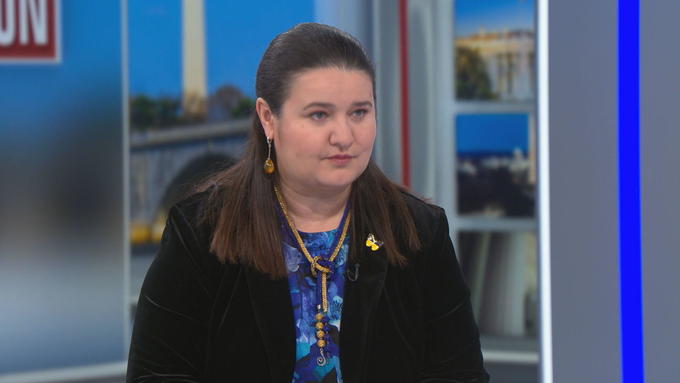 With the Russian military deciding to shift focus after failing to take the capital of Kyiv, Ukraine is preparing for a "massive attack in the east," the country's U.N. ambassador, Oksana Markarova, tells Margaret Brennan. What we asked: "There has already been eight years of fighting in the east before this full scale invasion. So when you are looking at the full force of the Russian military bearing down on this region, exactly what are you preparing for? What are you telling Ukrainians to prepare for?" What Markarova said: "What we are preparing is for the massive attack in the east. Yes, the enemy, Russians, they are demotivated. They are war criminals. But there are so many of them and they still have so much equipment and it looks like they're going to use all of it. So we are preparing for everything." Why it matters: Russia's invasion of Ukraine, now in its seventh week, has become increasingly bloody, with CBS News finding evidence of atrocities on the outskirts of Kyiv following the withdrawal of Russian troops from that area. 2. Sullivan: "We've seen scorched earth warfare already" in Ukraine 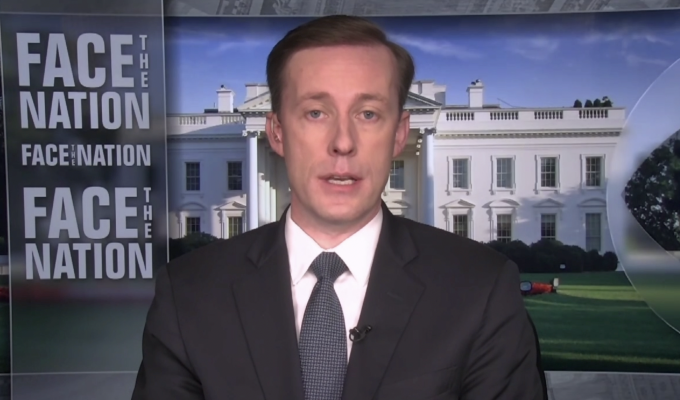 White House national security adviser Jake Sullivan calls Russian President Vladimir Putin's reported appointment of a general who oversaw a series of brutal attacks in Syria as the new central war commander for Ukraine a possible "indication" that more atrocities may be coming. What we asked: "Vladimir Putin reportedly tapped a new central war commander for Ukraine, same general who oversaw a very brutal campaign in Syria where they bombed hospitals, killed civilians. Is this a signal that this is the type of scorched earth warfare that we need to expect?" What Sullivan said: "I think it's actually just consistent with the way that Russia has conducted this war from the beginning. We've seen scorched earth warfare already. We've seen atrocities and war crimes and mass killings and horrifying and shocking images from towns like Bucha and rocket attack on Kramatorsk. So, I think this is an indication that we will see more of that." Why it matters: Sullivan's assessment comes days after a missile strike on a packed train station in the eastern Ukrainian town of Kramatorsk killed dozens of civilians, including several children, as well as the recent discovery of dozens of bodies in the Kyiv suburb of Bucha and elsewhere following the withdrawal of Russian troops. 3. Cleveland Fed Bank President Mester: Inflation could remain above 2% into 2023 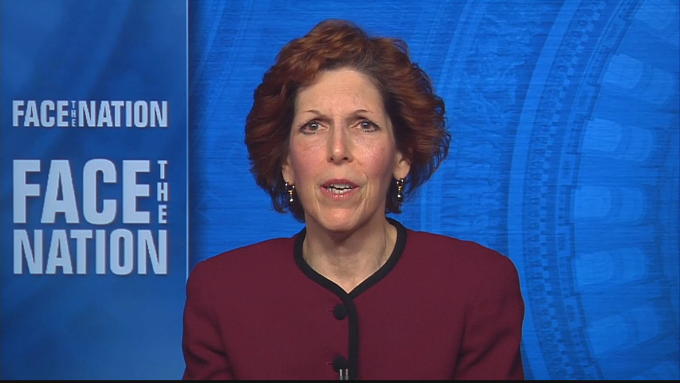 Loretta Mester, president and CEO of the Federal Reserve Bank of Cleveland, tells Margaret Brennan that she expects inflation "will remain above 2% this year and even next year." What we asked: "Where do you see inflation by the end of the year?" What Mester said: "I think that it will take some time to get inflation down because, as you know, there's other things going on in the economy that are adding to price pressures, including the commodity price increases and energy price increases that are happening as well. So, I think inflation will remain above 2% this year and even next year, but the trajectory will be that it will be moving down." Why it matters: Inflation remains one of the biggest drivers of Americans' opinions on the economy, and even those who say the job market is ok still don't rate the economy well, according to the latest CBS News poll. 4. Johnson: Title 42 "had to end sometime" 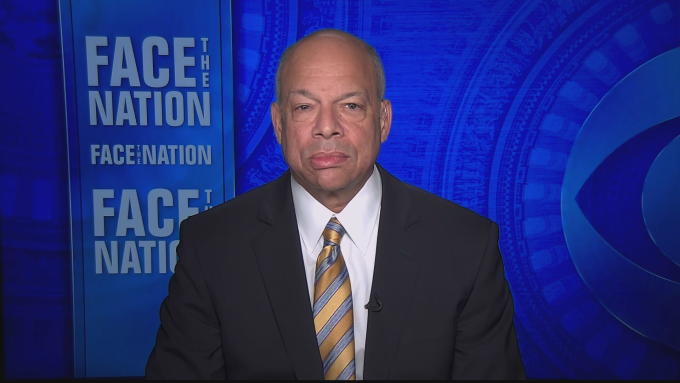 The Biden administration has announced plans to end the use of an emergency rule known as Title 42 in late May. The controversial law allows U.S. immigration authorities to quickly expel migrants and asylum-seekers over public health concerns. Jeh Johnson, secretary of the Department of Homeland Security under President Obama, joins "Face the Nation" to discuss the policy. What we asked: "When it comes to how the Biden administration planned for this pandemic-era restriction, Title 42, it's getting peeled back May 23. It coincides with the peak migration season. Why wasn't there any coordination within the administration to maybe, I don't know, push it a few months?" What Johnson said: "I would have argued that, first of all, there obviously is a recognition that this is an extraordinary authority. It's a public health authority in the event of a communicable disease. It had to end some time. The courts were becoming increasingly skeptical. I would have argued that we should keep it in place just a little while longer, until perhaps July, when these numbers do tend to slow down in the hotter weather." Why it matters: The decision to end Title 42 came after two federal courts undercut the Biden administration's attempts to keep the policy in place. However, senators from the president's own party recently pushed legislation to block the attempts to end the rule's current use. 5. Gottlieb: Masks should be "temporary," when local prevalence is "high" 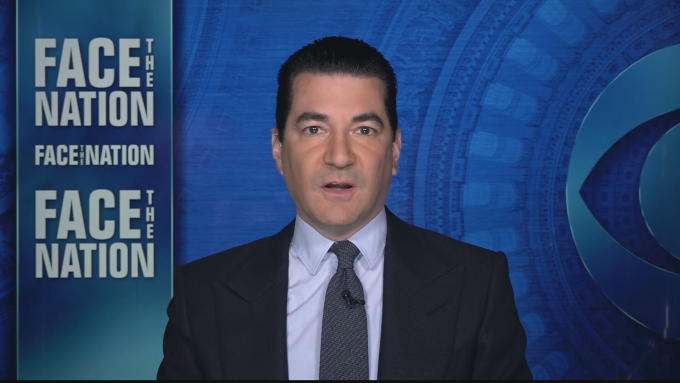 As the COVID-19 pandemic pushes onward, former Food and Drug Administration commissioner and current Pfizer board member Dr. Scott Gottlieb speaks to "Face the Nation" about how to characterize where the country is right now. What we asked: "If you are here in an area where there is an uptick, do you send your unvaccinated child to school with a mask? And how long do those youngest children remain unvaccinated?" What Gottlieb said : "I think that masks in very young kids has always been difficult because the young kids can't wear medical masks and they don't wear masks well. And the cloth mask isn't providing a lot of protection against this particular strain, which is probably an airborne virus. I think if you have an adolescent child or an older child who can wear a mask well and you have access to KF-94 masks or KN-95 masks that are comfortable, or level three procedure masks, and the child can wear it comfortably and it's not interrupting their school day, I think thinking about masking for a week or two when prevalence is high might be a prudent step to take. Masks should be something that we look to when local prevalence is high, something that we use for temporary periods of time. So you might want to think about it for a couple - a week - period while the prevalence is high. I think things will come down in the Northeast over the next two or three weeks. I think we're going to see things come down sharply. But right now prevalence is pretty high in the Northeast in the mid-Atlantic." Why it matters: There is still no federal approval for a COVID vaccine for children five and younger, which has left many parents frustrated. |